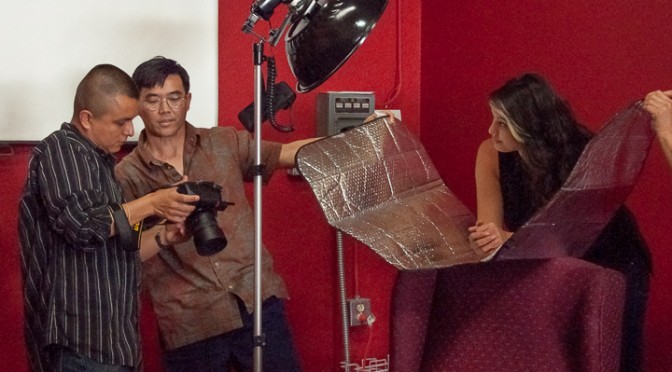
As a kid my parents always told me “If you can’t say anything nice, then don’t say anything.”
I’m not sure that works in the Western world.
Maybe in Asia, that was acceptable.
In the West, not expressing an opinion is sometimes a sign of lack of character or worse, a sign of weakness.
I grapple with this a lot when I teach especially when I have to critique students’ work.

It’s worse when I have to assign a grade.
In the end it always comes down to these questions:
Do I care about being popular or do I care about doing a good job teaching? How receptive or teachable is this person?
Beginners are usually easier to teach but those basic lessons require assignments to be very rigid with little leeway for experimentation and creativity because camera handling requires students to be given rigid instructions.

That’s why I usually go on field trips and shoot with my students.
I always give students more credit for trying out what they’ve learned during class or on field trips because it shows they didn’t just sit back and be ‘spoon-fed.’
They tried it out on their own, made an extra effort.
Occasionally a newbie with a prima madonna complex with a huge head wanders in.
You’ve probably met them.
They posted their pictures on social media, got lots and lots of likes so they must have an eye for photography.
To every suggestion I offer about their picture, they say, “Oh..that’s how I intended it, how I want it. That’s my vision.”
When I have a class of intermediate or more advanced students, that’s exciting.
I actually get to see some independent thinking and experimentation and hopefully some motivated students.
As with the beginners, I usually demonstrate the technique I’m looking for by shooting in class with my students.
But I always point out that they will get more credit if they re-shoot the assignment on their own with their own models or subjects.
Quite frankly I don’t think you can say you ‘own’ a certain technique if you don’t gather all the various elements together yourself from choosing the subject, styling their look, choosing the location and lighting.
And lo and behold there will be students who do the class work but nothing more and expect an A.
Mind you, it quite impossible to fail a photography class and I haven’t done that.
This leads me to what I feel is very pertinent if you partake in any sort of artistic endeavor.
- If you can’t handle the criticism, don’t ask for it.
- Also only solicit opinions of your work from people whose work you truly admire.
- Never offer any criticism unless you are specifically asked.
- Don’t offer a critique online. Artists’ egos are easily bruised. Texting doesn’t offer visual clues as to how your ‘suggestions’ are being taken.

I very seldom ask for a critique these days and it’s not because I don’t have anything left to learn.
On the contrary, I’m actually learning more now that I teach.
I have to be very methodical in my approach so I can document and deconstruct how I take my pictures.
When I need feedback on choices, I make a poll of which I invite you to participate.
So in the end, I would say you should take the feedback and number of likes you get when you post your work on social media with a giant boulder of salt.
You have to know your audience and their background. Aunt, uncles and families base how they like pictures very differently than folks with a little background in photography & art.
Peter Phun Photography

Promote Your Page Too
